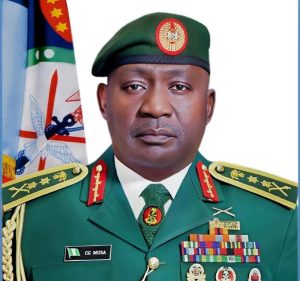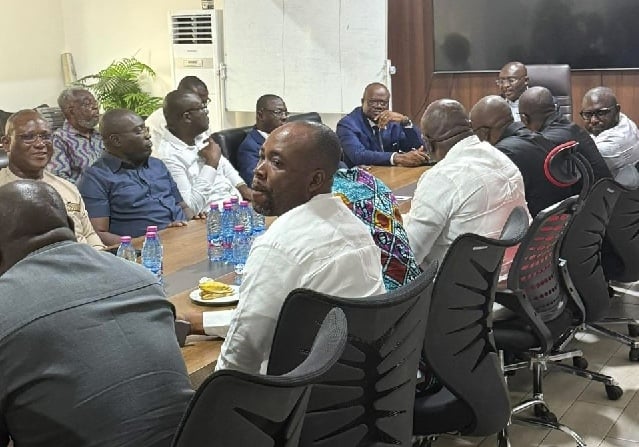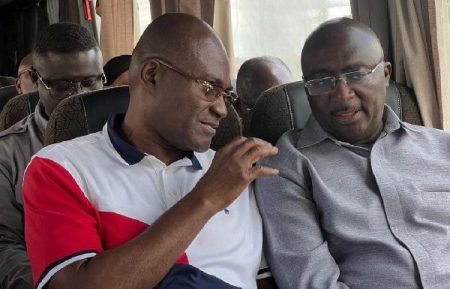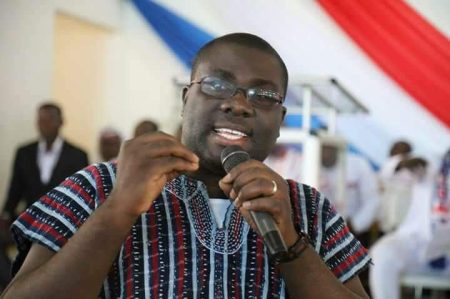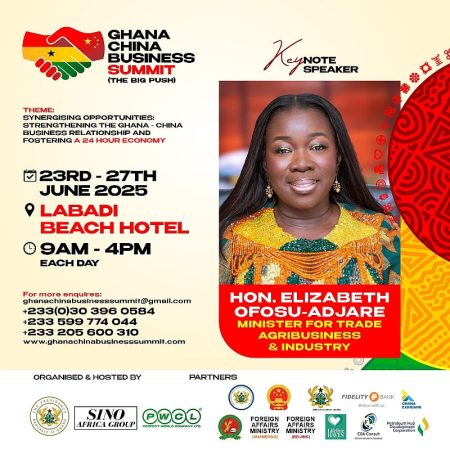Paragraph 1: Setting the Stage for the NPP’s Future
The New Patriotic Party (NPP) finds itself at a critical juncture following its defeat in the 2024 general elections. The party is embarking on a period of introspection and rebuilding, with the selection of a new flagbearer being paramount. This leadership transition has ignited a competitive race, drawing four prominent figures within the party: former Vice President Dr. Mahamudu Bawumia, outspoken Member of Parliament Kennedy Agyapong, Minister for Agriculture Bryan Acheampong, and former Education Minister Dr. Yaw Osei Adutwum. Each candidate presents a distinct vision for the NPP’s future, adding complexity and intrigue to the upcoming primaries scheduled for January 31, 2026. The stakes are high, as the chosen leader will shoulder the responsibility of revitalizing the party and steering it towards a potential return to power in the 2028 general elections.
Paragraph 2: Bawumia’s Bid and Parliamentary Backing
Dr. Mahamudu Bawumia, who served as Vice President for eight years and was the NPP’s presidential candidate in the recent 2024 elections, is making a determined bid to lead the party. His recent efforts have focused on consolidating support, particularly within the parliamentary caucus. In a significant display of political strength, a delegation of over 60 NPP Members of Parliament (MPs) recently paid a courtesy visit to Dr. Bawumia to express their unwavering support for his candidacy. This demonstration of solidarity underscores Dr. Bawumia’s enduring influence within the party and suggests a growing momentum behind his campaign. This endorsement from a substantial portion of the NPP’s parliamentary representation positions him as a formidable contender in the upcoming primaries.
Paragraph 3: The Significance of Parliamentary Support
The backing of over 60 MPs, out of the NPP’s total 88 seats in Parliament, represents a significant boost for Dr. Bawumia’s campaign. This level of support within the legislative arm of the party carries substantial weight and can influence the broader party membership. MPs play a vital role in shaping party policy, mobilizing grassroots support, and communicating the party’s message to the electorate. Their endorsement signals a belief in Dr. Bawumia’s leadership capabilities and his potential to unite and revitalize the party. This show of unity within the parliamentary caucus could also sway undecided delegates and create a perception of inevitability around his candidacy.
Paragraph 4: A Contested Field and the Need for Unity
While Dr. Bawumia’s parliamentary support is a significant advantage, the race for the NPP flagbearership remains highly competitive. Each of the other candidates brings unique strengths and appeals to different segments of the party. Kennedy Agyapong’s populist rhetoric resonates with a section of the electorate, while Bryan Acheampong’s established connections within the party machinery give him a strong base of support. Dr. Yaw Osei Adutwum’s background as an educationist projects a technocratic and reform-oriented image. This diversity of viewpoints and backgrounds presents a challenge for the NPP in maintaining unity during and after the primaries.
Paragraph 5: The Path to the Primaries and Beyond
The upcoming months will be crucial for all the contenders. The NPP is undergoing internal restructuring and constitutional reforms ahead of the primaries, adding another layer of complexity to the leadership contest. The candidates will need to navigate these internal party dynamics while simultaneously appealing to the broader party base. Successful campaigning will require a combination of strategic alliances, effective communication, and a demonstrable commitment to party unity. The January 2026 primaries will undoubtedly be a pivotal moment for the NPP, determining not only its immediate future but also its prospects for regaining power in the 2028 elections.
Paragraph 6: Challenges and Opportunities for Renewal
The NPP faces the challenge of rebuilding after its electoral setback. The party needs to address the factors that contributed to its defeat and present a renewed vision to the Ghanaian electorate. The leadership contest provides an opportunity for fresh ideas and perspectives to emerge, potentially revitalizing the party’s appeal. The chosen flagbearer will need to demonstrate strong leadership qualities, a capacity for unifying the party, and a clear strategy for addressing the country’s challenges. The NPP’s ability to successfully navigate this transition period will determine its long-term viability and its ability to remain a competitive force in Ghanaian politics.


